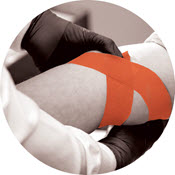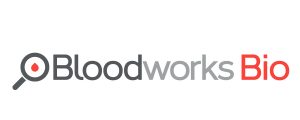Donating Whole Blood
What is Whole Blood?
The most common type of donation is a whole blood donation. Within every pint of blood are red cells, white cells, platelets, and plasma — all vital components for treatment of serious injury, illness, bleeding disorders, and surgeries. 1 in every 7 patients entering a hospital will need a blood transfusion, so your gift of blood may be someone’s second chance.
Did you know?
Your body can completely restore red cells in about four to six weeks, which means you can safely donate whole blood every 56 days, 6 times per year!
Help out today!
How is a whole blood donation used?

Your donation provides one unit (about a pint) of blood, which is then tested and processed into 2 components for use by patients: red cells and plasma. Red cells carry oxygen to organs and tissue. Plasma is the fluid that carries blood cells throughout the body, and also contains proteins that help clotting.
The ideal blood donor

All blood types are needed for patients, but there’s a high need for Type O donors. Type O positive is the most commonly transfused blood type. Type O negative is the universal donor and can be transfused to any patient regardless of blood type. This is especially important in emergency situations.
*Washington and Oregon have different requirements for 16 & 17 year-old donors. Learn more about eligibility.
The best time to donate
The need for blood never stops. It takes 1000 donors every day to maintain a healthy blood supply for hospitals in our region, so any day is the best day. And after your donation, you can schedule your next donation about 2 months out, up to 6 times per year!
Whole blood donation process

From registration to cookie, donating whole blood usually takes less than an hour in total. Actual donation time is only about 10 minutes. Our staff will be happy to answer questions during the entire process, and will make sure you are as comfortable as possible.
Registration + Eligibility Questionnaire* + Health Screening + Blood Donation + Refreshments: 1 Hour or less
Save time on the day of your appointment with Donor QuickPass.
Frequently Asked Questions:
How do I find out if I am eligible?
Your question may be answered on our eligibility page. If you have a specific question regarding your eligibility to donate blood and would like to discuss it with someone, you can email [email protected] or call 800-398-7888.
What if I don’t know my blood type?
You do not need to know your blood type to become a blood donor. In fact, it’s a great way to learn your blood type! When you donate blood, you can find out your blood type and the local hospital where your donation was delivered.
What can I expect?
The donation process takes about an hour from check-in to post-donation juice and cookies. The actual donation is only about 10 minutes.
Does it hurt?
Initially, you’ll only feel a quick pinch of the needle. During the donation, all you will feel is good, knowing you are helping community patients.
What is checked during the health screening?
A professional blood collection staff member conducts a medical history interview and a brief health check of your blood pressure, temperature, pulse, and iron level.
How much blood is collected in a single donation?
About one pint of blood. As a general rule, adults have about 10-12 pints in their body. Plasma is replaced within 24 hours and red cells are replaced within 4 to 8 weeks after donating.
How can I make my donation successful?
Get a good night’s sleep, eat a healthy meal, and drink water to stay hydrated. Also remember to bring your photo ID and wear a shirt with sleeves that can be pushed up to your shoulder. To save time, complete your QuickPass on the day of your donation. If you have a flu or cold, wait until you’re back to normal before donating. If you need to reschedule, reach out to us at [email protected] or 800-398-7888.
Is my blood tested before it is transfused?
Every unit of donation blood is typed for blood group (A, B, O) and Rh type (positive or negative), and tested to identify atypical or unusual red cell antibodies, and multiple disease markers before it’s transfused to a patient.
Who receives my blood donation?
Nearly every donated unit of blood is delivered to Pacific Northwest hospitals and transfused to local patients in need. Some reasons patients need blood include cancer treatment, trauma, surgery, and bleeding disorders.
Have more questions?
See our complete list of Questions and Answers or give us a call at 800-398-7888.




